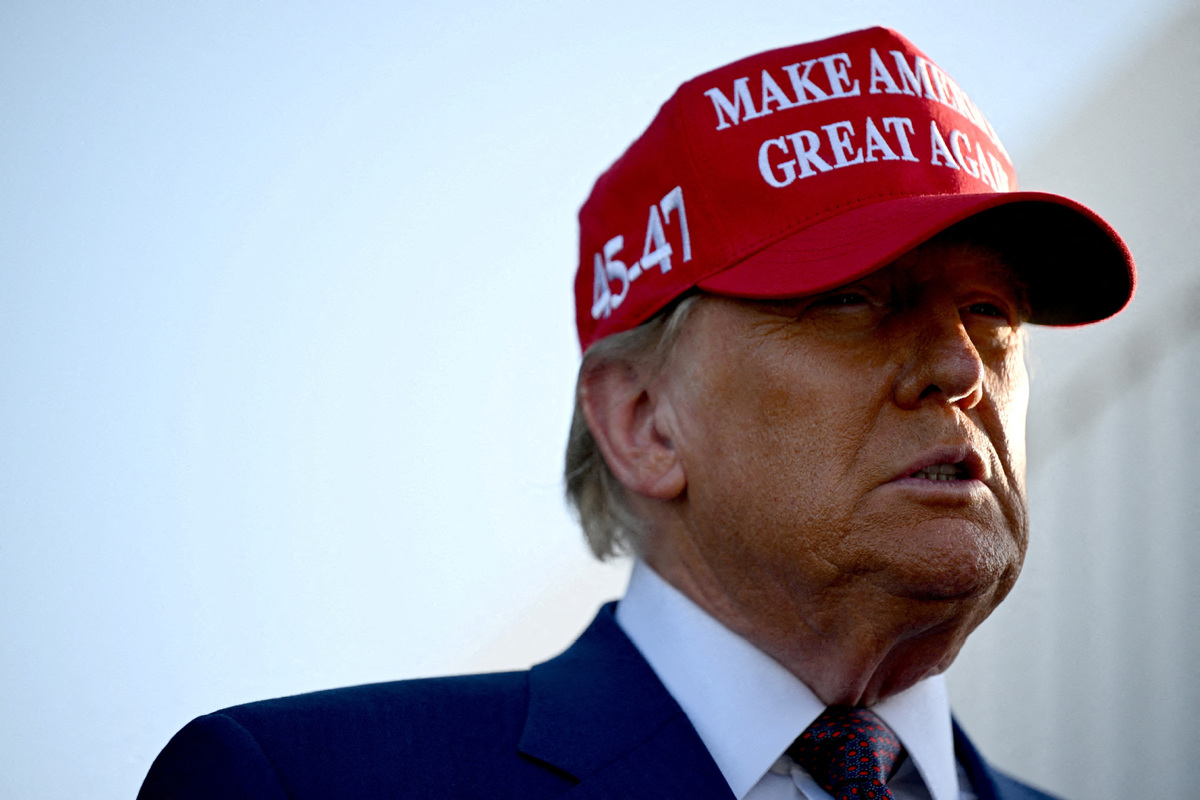
US President-elect Donald Trump. [Photo/Agencies]
WASHINGTON — US consumer confidence fell unexpectedly in December, according to survey data published Monday, as concerns were raised about the impact of tariffs on the economy before President-elect Donald Trump takes office.
Analysts warn that some of the incoming administration's policies could expose the economy to significant risks in 2025, including rising inflation and worsening federal debt issues.
Trump pledged during the campaign trail to implement sweeping tariffs on goods entering the United States, which many economists predict would have an impact on the cost of everyday items.
The US consumer confidence index slipped to 104.7 in December, down from a revised 112.8 last month, The Conference Board think tank announced in a statement. This was sharply below the market consensus of 113.5, according to Briefing.com.
"The recent rebound in consumer confidence was not sustained in December as the Index dropped back to the middle of the range that has prevailed over the past two years," The Conference Board chief economist Dana Peterson said in a statement.
"While weaker consumer assessments of the present situation and expectations contributed to the decline, the expectations component saw the sharpest drop," she added.
Monday's release is the last before President Joe Biden hands over the White House keys in January to Donald Trump, whose campaign focused on immigration and the cost of living.
But Trump's threats to impose widespread tariffs appear to have led at least some to grow less optimistic, according to The Conference Board, which noted that write-in responses to its survey found a rise in mentions of politics and the impact of tariffs.
"Notably, a special question this month showed that 46 percent of US consumers expected tariffs to raise the cost of living," The Conference Board announced.
Economists generally agree that broad tariffs on trade partners would lead to higher prices, with the burden falling on US businesses and consumers. This price increase could drive inflation higher, potentially disrupting the Fed's interest rate cuts and causing volatility in financial markets, thereby increasing economic uncertainty.
Structural challenges
Meanwhile, a string of underlying structural challenges, shady economic boosters, and incoming policy choices have the world worried about the US economy in the long run.
The bank holding company US Bank said in a recent article that a strong job market, low unemployment and wage growth have been crucial in sustaining consumer spending and overall economic growth. However, it cautioned that US credit card debt has surpassed $1 trillion to a historic high, highlighting potential vulnerability.
Regarding prices, the Labor Department reported that US consumer inflation in November increased 2.7 percent from a year ago. Despite that, the number has dropped significantly from its 9.1 percent peak registered in June 2022, but it still surpasses the Federal Reserve's target of 2 percent over the long run.
The US unemployment rate was up 0.1 percentage point month-on-month in November, and was 0.5 percentage point higher than in November 2023, according to the Bureau of Labor Statistics.
Furthermore, according to data from the Organization for Economic Cooperation and Development, the US faces the highest level of income inequality among G7 nations, the lowest life expectancy, and the highest housing costs.
Agencies - Xinhua